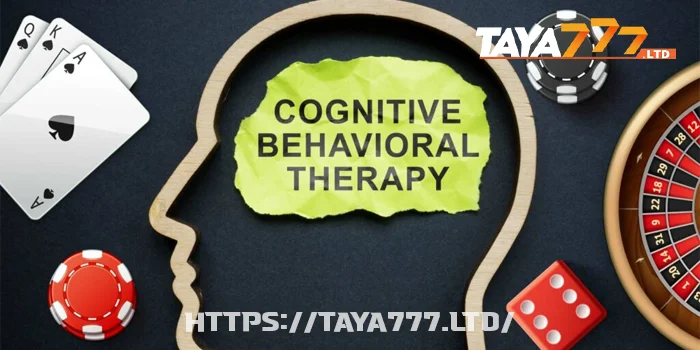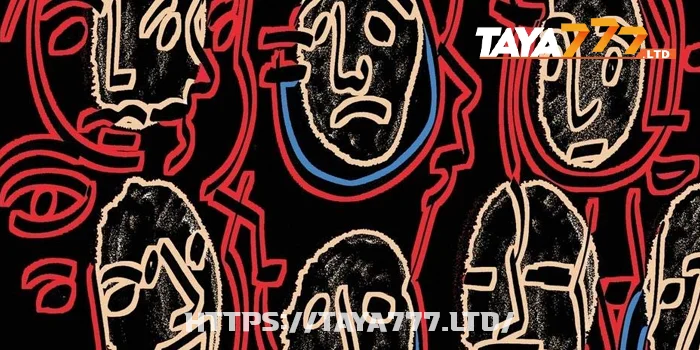Overcoming Gambling Addiction with CBT: Effective Treatment Strategies

Gambling addiction is a serious mental health disorder that affects millions of people worldwide, leading to financial distress, strained relationships, and emotional struggles. One of the most effective treatment methods for overcoming gambling addiction is Cognitive Behavioral Therapy (CBT). This article explores The Role of Cognitive Behavioral Therapy in Gambling Recovery, discussing key strategies and techniques that help individuals regain control over their gambling habits and achieve long-term recovery.
Understanding Gambling Addiction and Its Psychological Impact

What Causes Gambling Addiction?
Gambling addiction is fueled by several psychological and environmental factors, including:
- The Brain’s Reward System: Gambling triggers the release of dopamine, creating a euphoric feeling similar to drug use.
- Cognitive Distortions: Many gamblers believe they can control random outcomes, leading to excessive betting.
- Emotional Escapism: Gambling serves as a coping mechanism for stress, anxiety, or depression.
For insights into responsible gambling, refer to Responsible Betting: Essential Guidelines for Every Bettor.
The Effects of Gambling Addiction on Mental Health
Uncontrolled gambling can lead to severe consequences, such as:
- Financial Ruin: Massive debts, bankruptcy, and loss of assets.
- Mental Health Disorders: Increased rates of anxiety, depression, and suicidal ideation.
- Relationship Breakdown: Gambling problems often lead to broken families and social isolation.
The Role of Cognitive Behavioral Therapy in Gambling Recovery

What is Cognitive Behavioral Therapy (CBT)?
CBT is a structured, evidence-based therapy that helps individuals identify and change destructive thought patterns and behaviors associated with gambling addiction. Unlike traditional therapy, CBT focuses on present challenges and practical solutions.
How CBT Helps Treat Gambling Addiction
- Identifies Thought Distortions: Helps gamblers recognize irrational beliefs about betting.
- Modifies Destructive Behaviors: Encourages healthier habits to replace gambling urges.
- Enhances Emotional Regulation: Teaches coping strategies for handling stress without gambling.
For additional insights, explore The Psychology Behind Sports Betting: How to Master the Mind Game.
Key CBT Techniques for Gaming Rehabilitation
Identifying and Challenging Cognitive Distortions
- Recognizing common thought errors such as "I’m due for a win."
- Using logical reasoning to counteract impulsive betting urges.
Developing Coping Strategies and Emotional Regulation
- Mindfulness Techniques: Learning to stay present and resist cravings.
- Alternative Activities: Engaging in hobbies and social interactions instead of gambling.
Behavioral Exposure and Response Prevention
- Gradual Exposure: Introducing gambling triggers without acting on them.
- Behavioral Substitution: Finding healthy alternatives like sports, reading, or socializing.
The Impact of CBT on Gaming Rehabilitation and Long-Term Recovery

Long-Term Effectiveness of CBT in Gambling Addiction Recovery
Studies show that CBT significantly reduces gambling frequency and prevents relapse. Patients who undergo structured CBT therapy report improved impulse control and a better understanding of risk management.
Combining CBT with Other Treatment Methods
- Support Groups: Engaging in communities like Gamblers Anonymous.
- Medication Therapy: Some cases require prescribed medications to control compulsive urges.
Seeking Help: How to Begin CBT for Gambling Addiction
Finding a Qualified CBT Therapist
When choosing a therapist, look for:
- Licensed Professionals specializing in gambling addiction recovery.
- Online CBT Programs for flexible treatment options.
Self-Help CBT Techniques for Gambling Addiction
- Journaling Gambling Triggers: Writing down urges and reflecting on them.
- Self-Reward System: Setting small goals and rewarding yourself for abstaining from gambling.
For safe betting practices, refer to Sports Betting Legalities: A Comprehensive Guide for Bettors.
Conclusion – Embracing CBT for a Gambling-Free Future
Cognitive Behavioral Therapy provides gamblers with the necessary tools to regain control over their habits, reduce risk-taking behaviors, and adopt healthier coping mechanisms. Understanding The Role of Cognitive Behavioral Therapy in Gambling Recovery empowers individuals to make informed decisions, seek help, and embrace a gambling-free future.
For those struggling with gambling addiction, reaching out to professionals and using CBT strategies can be life-changing. Always remember, responsible gambling is key to a balanced lifestyle.
Explore more about secure gaming practices at TAYA777 Secure Gaming Experience: Ensuring Player Safety. Copyright Notice : This article is an original work by Overcoming Gambling Addiction with CBT: Effective Treatment Strategies It follows the CC 4.0 BY-SA copyright agreement. For reprinting, please attach the original source link and this notice.Original article link : https://taya777.ltd/post/article/overcoming-gambling-addiction-with-cbt-effective-treatment-strategies
Frequently Asked Questions
PAGCOR generally regulates gaming activities in the Philippines and issues the license to operate a gaming activity. Thus, the legal/regulatory framework governing gambling primarily consists of rules and regulations promulgated by PAGCOR.












